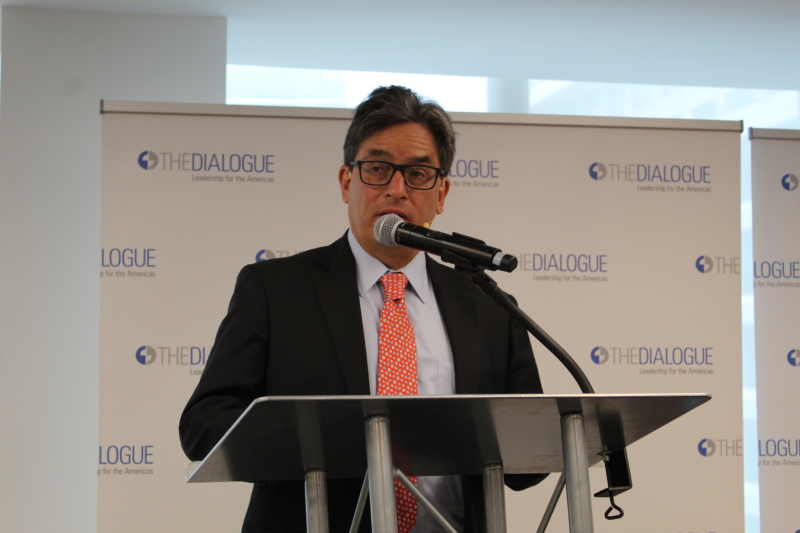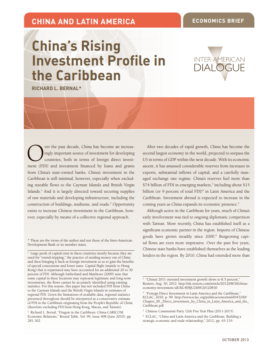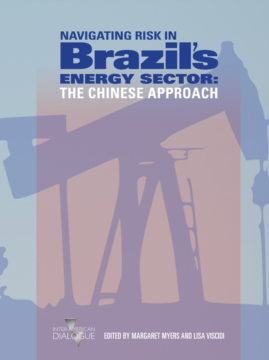What is the Outlook for Colombia’s Oil Sector?
What is the outlook for Ecopetrol and the Colombian oil sector in the short to medium term?
On April 12, the Inter-American Dialogue, in partnership with the Latin America Program at the Wilson Center, hosted a conversation with the current Minister of Finance and Public Credit of Colombia, Alberto Carrasquilla. Minister Carrasquilla previously served as Minister of Finance under President Uribe from 2003 to 2007 and has worked as a technical economist at the central bank of Colombia and the Inter-American Development Bank. These experiences have shaped his perspective on how Colombia can manage the increasingly strained economy. Cynthia Arnson, the director of the Latin America Program at the Wilson Center and the moderator of the conversation, opened the event by juxtaposing the traditionally strong Colombian economy with the current strains on the economy from the Venezuelan crisis and the resulting flow of immigrants into Colombia.
Thanks to @The_Dialogue, @CindyArnson and @TheWilsonCenter for a positive discussion on #ColombiaEconomía. Great opportunities for Colombia over the next years. Pensions, formalizing the economy, and growth continue to pose challenges and risks, but also opportunities. pic.twitter.com/yomoTGpm4y
— Mauricio Vasquez (@vasqmau) April 12, 2019
Minister Carrasquilla’s opening remarks acknowledged the problems that Arnson mentioned and highlighted his administration’s specific goals to combat them. He broke his speech into three sections: growth, external accounts, and the fiscal situation. In terms of growth, he highlighted Colombia’s expected 3.6% growth, spread throughout all sectors. He attributed this expected growth to structural reforms in taxation that will benefit private investment, specifically the lowering of energy taxes by 35%. Regarding Colombia’s external accounts, Carrasquilla acknowledged the increase in the current account deficit in 2019 but assuaged any fears by noting that the reason for this is increased FDI. The minister explained that once those new FDI’s profits are repatriated, the deficit will resolve itself. Lastly, in terms of the fiscal situation, he noted a challenge that quickly became a theme throughout the whole event: the pressure to increase expenditure. Minister Carrasquilla’s plan to avoid these pressures is multi-faceted. First, Colombia plans to reform tax collection to help fund the increased needs for expenditure, hoping to reduce tax evasion from 30% to 24%. Secondly, the ministry plans on substituting expensive debt for more affordable market debt, from a 30% interest rate to a 6% interest rate. They will also examine asset holdings that aren’t yielding a desirable profit, after an increase in $2.8 billion in assets since 2018. Minister Carrasquilla’s opening remarks demonstrated both an awareness of the difficulties the economy is facing as well as a clear plan for how to resolve those problems.
The Q&A section reflected the worries that Colombian people, scholars and analysts still have about the economy. The questions expanded on several of the issues mentioned in the opening remarks, allowing the minister to speak more specifically about the ways he plans to overcome such problems. Attendees asked about fiscal rule, the quantities of taxes applied to businesses versus individuals, and capital flows and how those will affect Colombia’s ability to fund the increased expenditure. Questions also revolved around informality and the role of entrepreneurship in growth. In response, Minister Carrasquilla outlined plans for deregulation, stabilization, and buffers, that he hopes will set the economy on a path of extensive growth and reform.
What is the outlook for Ecopetrol and the Colombian oil sector in the short to medium term?
Over the past decade, China has become an increasingly important source of investment for developing countries. China’s investment, however, in the Caribbean is still minimal.
Brazil’s oil and gas and electricity sectors are an important destination for Chinese direct investment.
 Leonie Rauls / Inter-American Dialogue
Leonie Rauls / Inter-American Dialogue

